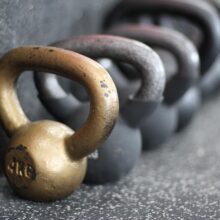How Much Weight Will I Lose? A Scientific Guide to Setting Realistic Goals
Losing weight can be a daunting task, especially when it comes to setting realistic goals. Many of us have struggled with the quest to shed those extra pounds, only to be met with disappointment and frustration. But what if we could harness the power of science to set achievable targets and finally reach our weight loss goals?
The Importance of Setting Realistic Goals
Before we dive into the nitty-gritty of weight loss, let’s first establish the significance of setting realistic goals. Unrealistic expectations can lead to feelings of inadequacy, disheartenment, and ultimately, abandonment of the weight loss journey altogether. On the other hand, setting realistic targets can boost motivation, confidence, and overall success.
Factoring in Body Composition and Metabolism
So, how do we set those realistic goals? A crucial aspect to consider is body composition and metabolism. It’s essential to understand that weight loss is not solely about losing pounds; it’s about shedding body fat while maintaining or even increasing muscle mass.
To calculate a realistic weight loss goal, multiply your current body fat percentage by 10-20%. This will give you an estimate of the weight you can safely lose while maintaining a healthy body composition.
Example: A 30-year-old woman with a 35% body fat percentage
Let’s say our 30-year-old woman has a 35% body fat percentage. To calculate her realistic weight loss goal, we’ll multiply this number by 10-20%. This would result in a target weight loss range of 3.5-7 pounds (1.6-3.2 kg) for a maximum loss of 15.5 pounds (7 kg) over 12-16 weeks.
Factors Influencing Weight Loss
But wait, there’s more to it! Other factors come into play when setting realistic weight loss goals, such as:
* Basal Metabolic Rate (BMR): A higher BMR can impact your ability to lose weight, as your body requires more energy to function.
* Activity Level: Engaging in regular exercise can significantly impact weight loss.
* Dietary Habits: Developing healthy eating habits and reducing caloric intake are crucial components of a successful weight loss journey.
To factor in these elements, consult with a healthcare professional or registered dietitian to determine a personalized weight loss plan.
Conclusion
In conclusion, losing weight requires a scientific approach that takes into account body composition, metabolism, and various influencing factors. By setting realistic goals and understanding the intricacies of weight loss, you’ll be better equipped to tackle the journey and achieve your desired results.
Remember: patience, persistence, and a willingness to adapt are key components of a successful weight loss journey. By embracing the science behind it, you’ll be well on your way to shedding those unwanted pounds and embracing a healthier, happier you.





